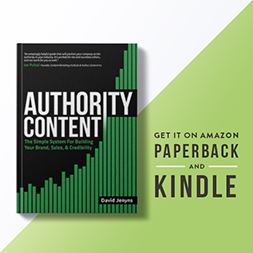
Your website needs the big three to succeed.
When it comes to Google ranking websites, there are three important areas that we need to be aware of. First there are the usability factors which have been automated by Google. Usability is how people are engaging in your website and that is part of the Panda algorithm update. Then we have the links analysis, which was the Penguin update. Again, that has been automated. Now Google’s Quality Guidelines have introduced something called EAT – expertise, authority and trustworthiness.
Google’s EAT
Most recently Google have released their Quality Guidelines which lean towards something they’ve called EAT. Understanding this is vital if you want to improve your website ranking. Google has a three step process which introducing new guidelines. First they document it, then they prove it, then they automate it. They have documented this area and now they are proving it.
What does EAT stand for? Eat stands for Expertise, Authoritativeness and Trustworthiness. The Quality Guidelines say: ‘High quality pages and websites need enough expertise to be authoritative and trustworthy on their topic.’
When we think of expertise and authoritativeness, it’s not that someone needs to have a formal education or specific training, but rather they just need to be recognized within their industry or within their community as having some expertise on a particular topic.
This sets the tone for what flows throughout the entire Guidelines document. There is a really big emphasis on this expertise, authoritativeness and trustworthiness. It’s a case of all boats float on a rising tide. If you can get your reputation right, Google can be a little bit forgiving on some other things.
Reputation rules
The Guidelines also say ‘a very positive reputation can be a reason for a high rating for an otherwise medium page.’ That is, you can have a page that might not score so well on some other factors, but if it has a high positive reputation, it will actually lift the page quality up. It will give that website extra visibility online. This is why you need to focus on building up your authority.
Once you do that, know that all boats float on a rising tide. You must focus on building up your authority and also focus on building up your expertise and your business’ trustworthiness in a space. If you can attach that to your website, everything, all of the pages on that website starts to lift up. As stated, a positive reputation can turn a medium ranking website into a high ranking website.
The workings of the Quality Guidelines
How do the Quality Guidelines work? Google talks about the idea of an overall page quality rating scale. Google has a scoreboard to do with your website. It has a whole lot of different categories and factors that it looks at. A lot of these are listed in the Quality Guidelines. With all of these factors that it’s comparing against, it will get its quality raters and give them some guidelines and get them to rank your website on this scale for these different factors. There will be lowest, low, medium, high and then highest. Then it sums these together to give you an overall score for your website. There is also an individual score for each individual page.
Some factors are more important than others. That positive reputation really is one of the strong factors that can lift everything else up. The Guidelines state: (a website) ‘should come from those with experience and everyday expertise.’ If you’re ranking low on that, everything else gets pulled down. There are also other factors such as lacking in care and maintenance, that is if you’re not looking after your website.
Main content is important
There is also ‘no main content’ which is another big thread. Google always keeps coming back to what is the main content of a page. Does it deliver and add value through to the user who is looking at that particular page? All of these factors are taken into account.
No magic button

You can’t magically rank to the top.
There is no magic button like there used to be when it comes to rankings. Previously there were fewer factors that Google took into account. The biggest trump card used to be links and how many links could we send at a website? With everything else being equal, even if you had a really bad score on a whole lot of other things, if you had enough links pointing to a page, it was enough to still get it to rank.
Now because of these extra factors, and some are more important than others, what we want to do is try to tick as many try to tick as many of these as possible. It will give us an overall score which can then lift our entire website.
This is just step one. They haven’t yet fully automated this, and that’s why they’ve got these quality raters going in there and reviewing websites by hand. Let’s start planning for the future. Rather than cutting corners, let’s just set a really solid foundation for what Google is looking for and build on something that is going to stand the test of time.
The big three
The three areas that we need to think about now are our usability, our links and building up that authority. It just comes under the umbrella of what is actually happening on your website? That is the first thing that we need to get right. We need to have all the right signals for Google for what is happening on your website.
Then we need to analyse our links and make sure we’ve got a well-rounded, healthy looking link profile. The final piece is realizing how important the EAT acronym is and the idea of building up your authority. Get these three areas under control and you will see your business grow immeasurably.
The Authority Content can help improve your website ranking. We offer a ‘done for you’ service wherein we use our tried-and-tested method. Click here to find out more about it.



